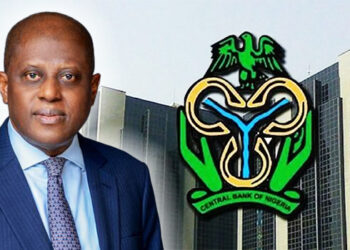*Says New Regulatory, Compliance Framework For Fintech Companies Coming
*Banks To Increase Capital Base
The Governor of the Central Bank of Nigeria (CBN), Olayemi Cardoso has faulted the yearly rituals of Monetary Policy Committee meetings, insisting that the usefulness and effectiveness of these meetings for efficient policy measures should have been the focus.
Consequently, he observed that the MPC meetings of the past did not achieve the statutory mandate hence the dislocation in the monetary transmission mechanisms.
Cardoso made this known on Friday night at the annual bankers’ dinner and 60th anniversary of the Chartered Institute of Bankers of Nigeria (CIBN) in Lagos State.
“For quite some time, there has been a dislocation of our monetary transmission mechanisms rendering the MPC meetings largely ineffective,” he said.
“For the avoidance of doubt, the Central Bank of Nigeria Act 2007 requires that the meeting of the Monetary Policy Committee of the Bank be held at least four times a year, and the Bank has satisfied this requirement for 2023. Our focus has been on ensuring these meetings are useful and effective, ” he stressed.
The CBN chief also said the apex bank strayed from its core mandate under the previous administration of Godwin Emefiele.
He added that commercial banks in the country will be directed to increase their capital base.
Cardoso, who was appointed by President Bola Tinubu on September 15, 2023 and confirmed by the Senate on September 26, 2023, said a new regulatory and compliance framework will be developed for fintech companies under his administration.
ALSO READ:Oyedele Raises Concerns Over N6tn Revenue Generation, Tax Waivers Annually
He said, “Recent developments in the payment services landscape have raised concerns regarding the use of technology and the existing licensing and regulatory framework. We have observed that some licensees are operating outside their approved activities, breaching the boundaries set for them.
“Any intentional or non-intended non-compliance will be subjected to sanctions as operators have the responsibility to ensure that they are licensed for the activities they undertake.
“As we conduct a comprehensive review of licensing framework for payment services, we will engage in extensive consultation to develop a new regulatory and compliance framework that is suitable for the technology-driven payment services sector. “












